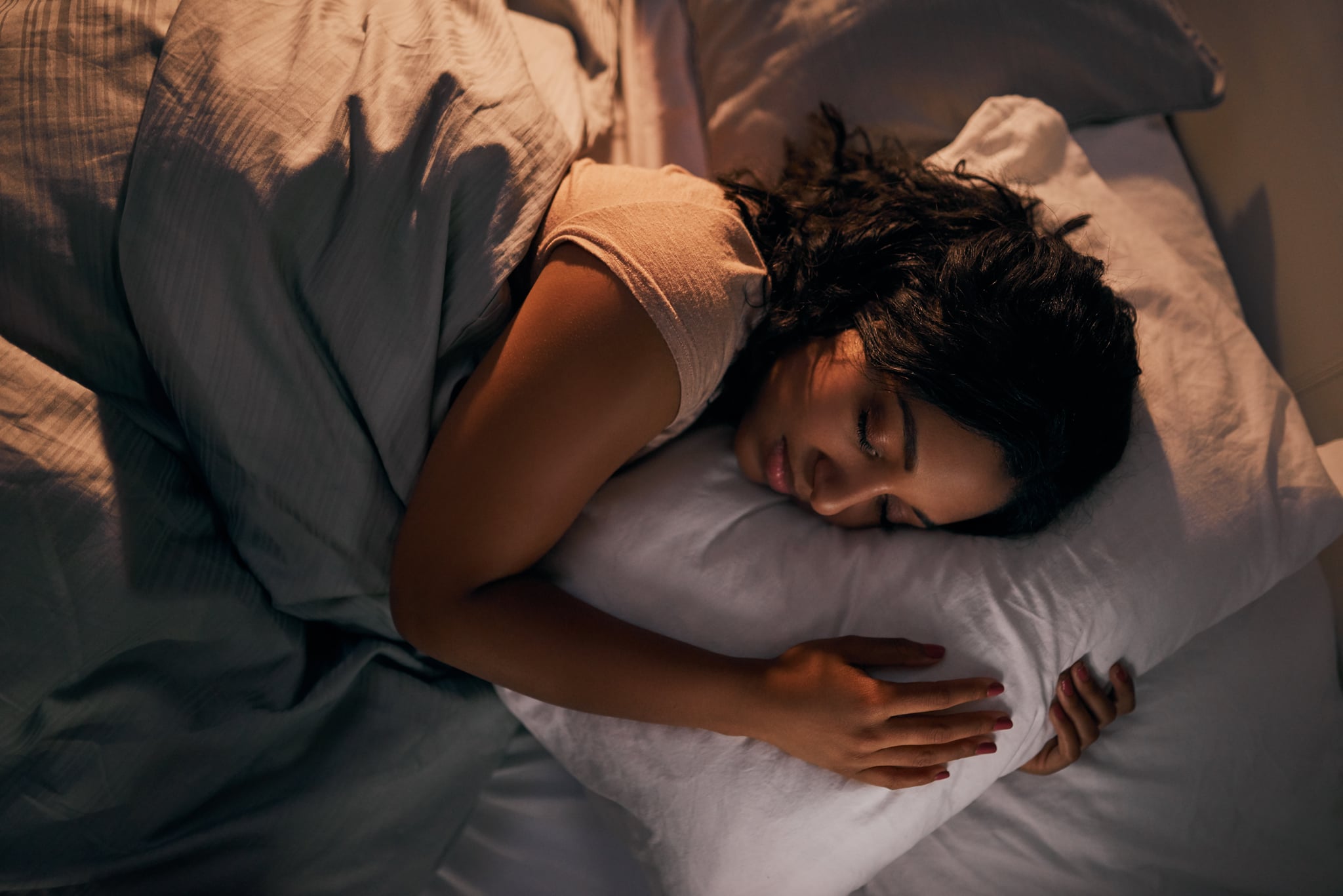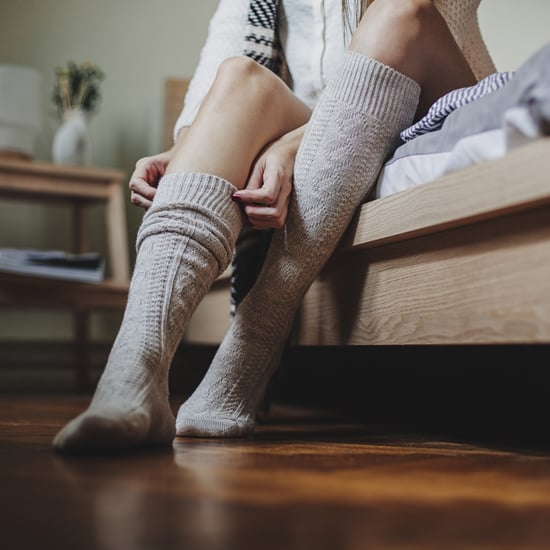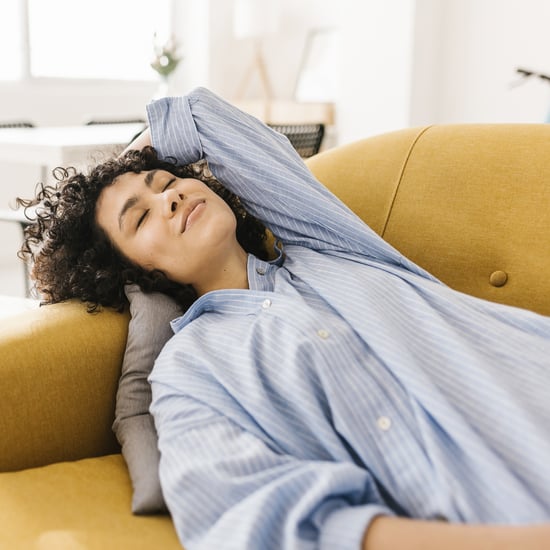How to Stop Sleeping on Your Stomach
Experts Explain Why You Might Want to Stop Sleeping on Your Stomach and How to Do It

If you've always slept soundly on your stomach, but you're concerned that some of the aches and pains or other issues you're dealing with might be related to it, it may be time to make over your sleep habits. While not everyone will experience discomfort from sleeping on their stomach — and this position can even be helpful for some, like those with sleep apnea — it can exacerbate neck and back pain if you're prone to it. After all, in order for you to breathe, you have to turn your head, which rotates and places pressure on the vertebrae in the neck.
"This stretches the neck muscles which can cause a stiff neck, neck pain, or headaches. It can also cause increased pressure along the nerves that exit the spine, causing numbness or tingling that radiates down the neck and into the hands," Erin Nance, MD, an orthopedic surgeon in New York City, told POPSUGAR. "Additionally, when you sleep on your stomach, your body can sag into the mattress, causing an increase in the concavity of the lower back, placing increased pressure across the joints of the lumbar spine."
Sleeping with your face buried in a pillow can also cause breakouts, as dirt, oil, and grease from your pillow and hair can clog your pores. "It's not bad for your skin in general to sleep on your stomach, but for some people who are acne prone, it may make breakouts more likely if they're not careful," Rajani Katta, MD, a dermatologist and clinical professor of dermatology at the University of Texas McGovern Medical School in Houston, told POPSUGAR. "I've seen issues from haircare products, especially oils and serums, being transferred from bangs to forehead and triggering acne outbreaks. Regularly washing your pillowcases, especially if you use hairstyling products and don't shower before bed, is also important, as is fully removing your makeup before dozing off."
If you're experiencing either of these issues, and think the best solution is to retrain yourself to sleep in a different position, Dr. Nance advises transitioning first to your side, tucking pillows between your legs and arms to help break the habit. If sleeping on your stomach really is the most comfortable option for you, you can take steps to protect your neck and back. "The key is to have a supportive mattress and avoid placing the spine in an unsupported, hyperflexed, or extended position," Dr. Nance said. "Do not sleep with a pillow that is too large and will force your neck into too much flexion."






